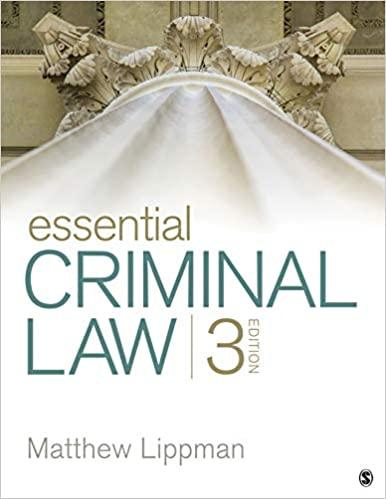Question
In 1990, the owner of a parcel of land in Los Angeles County, California, subdivided it into two residential lots, ServAcre, which had frontage on
In 1990, the owner of a parcel of land in Los Angeles County, California, subdivided it into two residential lots, ServAcre, which had frontage on a pond, and DomAcre, which had no such frontage or pond access.
Al purchased DomAcre, and Bob purchased ServAcre. Al's deed contained a grant of an easement over ServAcre for purposes of launching a boat on the pond, and Bob's deed was expressly subject to that easement. Both deeds were recorded. Al used the easement, which was a gravel path leading to the pond, several times every summer.
In 1997, Al conveyed DomAcre to Cal, who also purchased ServAcre from Bob the next year.
In 2001, Cal sold DomAcre to Dan. In 2002, Cal sold ServAcre to Ed. The deeds to Dan and Ed did not contain any mention of the easement. Nevertheless, beginning in 2002, Dan crossed ServAcre to launch a boat several times each summer, without objection from Cal or Ed, until 2008 when Dan sold his boat.
In 2010, Dan bought a new boat and attempted to use the gravel path over ServAcre, but found a locked gate blocking his entry. Ed refused to permit Dan to cross his land. Dan replied that both the language of his and the prior deeds, as well as his prior use, created his right which he would enforce in court if necessary.
If Dan attempts to enforce his claimed right to cross ServAcre in court. In the case of Dan v. Ed, what result?
The bolded section is what I need help on. Was there a prescriptive easement that was granted in this case?
Step by Step Solution
There are 3 Steps involved in it
Step: 1

Get Instant Access to Expert-Tailored Solutions
See step-by-step solutions with expert insights and AI powered tools for academic success
Step: 2

Step: 3

Ace Your Homework with AI
Get the answers you need in no time with our AI-driven, step-by-step assistance
Get Started


